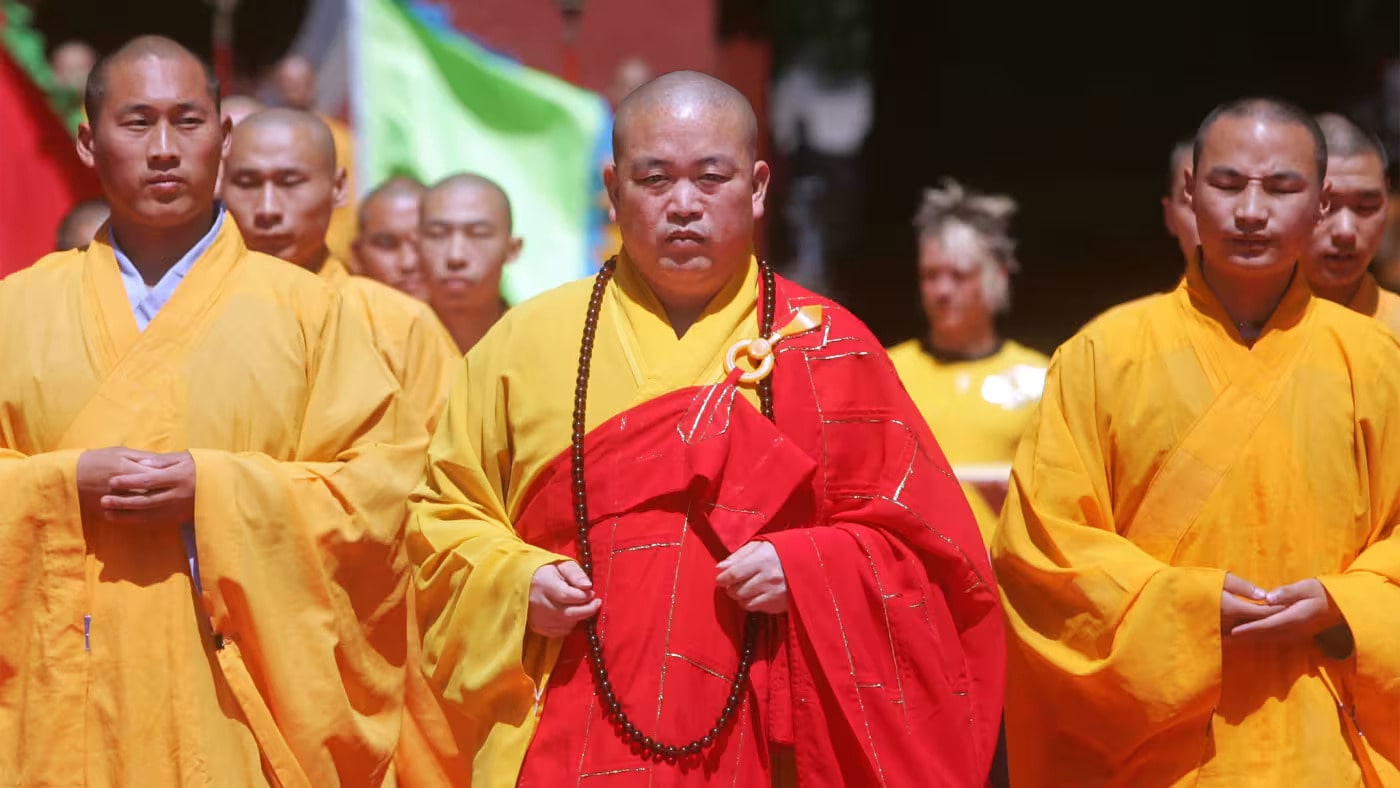After High-Profile Abbot Scandal, China's Buddhist Association Calls for Legal Reckoning
The Buddhist Channel, 24 Aug 2025
BEIJING – In the wake of a stunning scandal involving one of its most prominent leaders, China's Buddhist community is undergoing a period of intense reflection and a forceful call for reform. The Buddhist Association of China (BAC) has issued a second stern directive in a month, urging clergy across the nation to strengthen legal awareness and uphold national laws, emphasizing that monastic vows do not exempt them from their duties as citizens.

The statements are a direct response to the fall from grace of Shi Yongxin, the former abbot of the world-famous Shaolin Temple. In late July, the temple announced Shi was under investigation by multiple authorities for allegedly embezzling funds and conducting affairs with women, which reportedly resulted in him fathering at least one child. The BAC swiftly revoked his ordination certificate days later, formally expelling him from the monastic community.
"Their religious identity neither negates civic responsibilities nor places them above the law," the BAC stated unequivocically in its latest release Tuesday evening. The message reinforces a core principle: ordination is an addition to, not a replacement for, constitutional obligations.
Shi Yongxin was no ordinary monk. As the 30th abbot of the 1,500-year-old temple—a cultural icon known for its martial arts tradition—he was a modernizer and a global figure. He was also the first Chinese abbot to hold a Master's in Business Administration, a credential that symbolized his ambitious, and now controversial, commercialization of the Shaolin brand.
His alleged actions, the BAC stated, have "disrupted the management of Shaolin Temple and the proper order of the Buddhist community," and "brought discredit to the national Buddhist community."
Beyond the legal implications, the scandal has triggered a deeper introspection within the association. An earlier statement on August 7th framed the incident as a severe alarm bell. It exposed critical "loopholes in the management of Buddhist organizations and venues," admitting that internal supervision mechanisms "need further improvement."
The BAC also pointed to a spiritual crisis among some leaders, noting negligence in practice, lax self-discipline, and a wavering faith that led them to abandon the ethical standards central to Buddhist life. Shi's actions, the statement concluded, "ruined his own spiritual life and wisdom."
In a clear message to the entire sangha, or monastic community, the association vowed to "advance comprehensive and strict governance" and to resolutely discipline those who violate both religious precepts and state law. The case of the "CEO monk" has become a catalyst for a nationwide push to tether spiritual authority firmly to legal and civic accountability.


